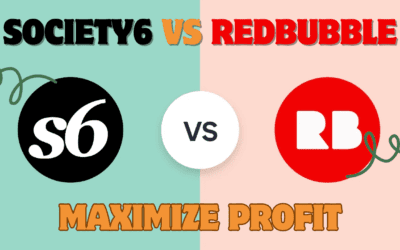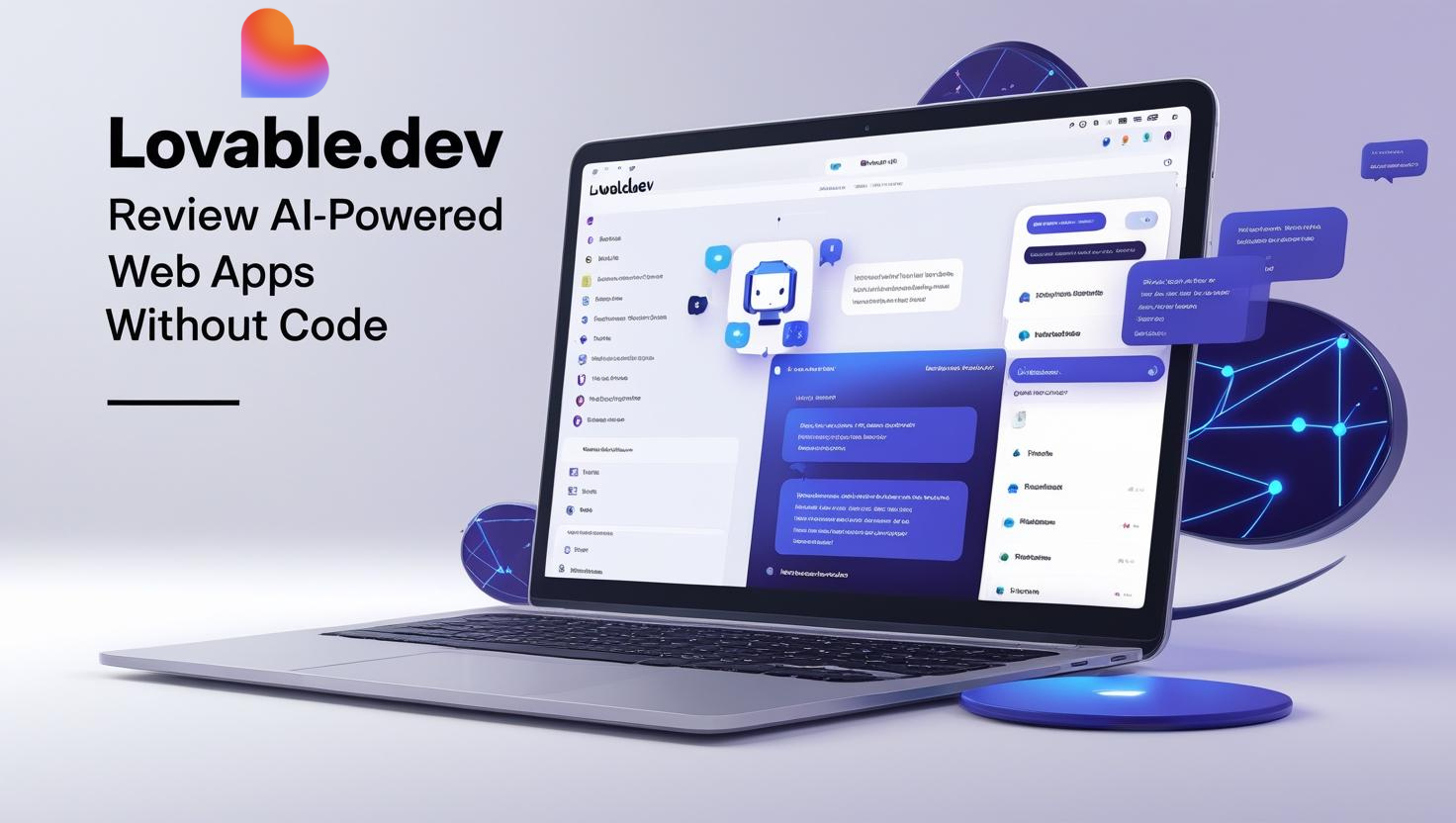Introduction
The no-code movement has revolutionized software development, enabling individuals and businesses to create applications without mastering complex coding languages. Among the latest innovations in this space, Lovable.dev stands out as a platform that allows users to build AI-powered web applications simply by describing their ideas in plain language. This comprehensive Lovable.dev review, conducted on June 3, 2025, explores its features, real-world applications, pricing, pros and cons, and how to get started. Whether you’re a startup founder, a designer, or a non-technical user, this guide aims to help you decide if Lovable.dev is the right tool to bring your app ideas to life, based on extensive research from user reviews, official documentation, and industry analyses.
What Is Lovable.dev?
Lovable.dev is an AI-driven platform that enables users to create web applications and software products through a chat-based interface. Founded in 2023 by Anton Osika and Fabian Hedin in Stockholm, Sweden, Lovable.dev leverages advanced AI, including large language models like GPT-4, to generate front-end and back-end code from natural language prompts. Initially launched as a command-line utility called GPT Engineer, it has evolved into a scalable web platform. By early 2025, it had over 140,000 registered users and an estimated $50 million in annual recurring revenue, indicating rapid growth and adoption in the no-code space, as noted in a TechCrunch article from February 2025.
The platform’s core purpose is to democratize app development, making it accessible to both technical and non-technical users. It uses sophisticated natural language processing (NLP) to interpret user descriptions and generate the necessary code, streamlining the development process. This approach is particularly appealing for entrepreneurs, startup founders, and designers looking to prototype and launch apps quickly without hiring developers.
Key Features of Lovable.dev
Lovable.dev offers a robust set of features that make it a compelling choice for building web apps without coding expertise. These include:
- AI-Powered App Generation: Lovable.dev’s standout feature is its ability to generate full-stack web applications from natural language descriptions. Users can describe their app idea, and the AI, powered by advanced NLP, creates the necessary code for both front-end and back-end components. This iterative process allows users to refine their app through feedback, making it suitable for projects ranging from simple to moderately complex. For instance, users can describe a contact form with email notifications, and the AI will generate the corresponding code.
- Drag-and-Drop Interface: While primarily chat-based, Lovable.dev includes a drag-and-drop interface for designing user interfaces, enhancing accessibility for non-technical users. This feature allows for intuitive customization of layouts and components, ensuring apps are both functional and visually appealing. Users can visually edit components, attach images for precision edits, and refine designs through the chat interface.
- Integrated Front-End Frameworks: The platform generates clean, modular front-end code using popular frameworks like React, Vue, and Angular. It includes standard UI elements such as forms, buttons, and navigation menus, all designed to be responsive with modern CSS and grid systems for seamless performance across devices. This ensures apps are mobile-friendly and visually consistent.
- Back-End and Database Integration: Lovable.dev integrates seamlessly with Supabase, an open-source backend-as-a-service platform, to handle database management, user authentication, CRUD operations, and file storage. The AI automatically generates database tables and API endpoints based on user prompts, simplifying back-end setup. This integration was highlighted in user reviews on Reddit, where users noted using Supabase for backend functionality.
- GitHub and Version Control: With deep GitHub integration, Lovable.dev syncs generated code to user repositories, enabling version control and collaboration. Each change is committed with meaningful messages, and users have full access to the codebase for manual modifications, which is crucial for developers who want to tweak the AI-generated code.
- Embedded Components and Widgets: Users can create embeddable components like contact forms, product configurators, or calculators, which can be added to existing websites as HTML, CSS, and JavaScript snippets, enhancing functionality without requiring a full rebuild. This feature is particularly useful for adding interactive elements to existing websites.
- Deployment and Hosting: Lovable.dev offers one-click deployment with 100 GB of free hosting bandwidth per month during its beta phase, powered by Vercel for custom domains and CDN support. Users can also download their code for hosting on platforms like AWS, Google Cloud, or Heroku, providing flexibility for deployment options.
A compelling statistic from Jussi Hyvarinen’s review suggests Lovable.dev can accelerate app development by up to 20 times compared to traditional coding methods, making it a game-changer for rapid prototyping and deployment (Jussi Hyvarinen). This aligns with user feedback on Product Hunt, where users described it as a “lifesaver for quick web app deployment,” saving hours weekly.
Real-World Examples & Case Studies
Lovable.dev’s versatility is evident in the diverse applications built on its platform. Here are three notable examples, sourced from X posts and reviews:
- Weather App: Built by a user showcased on X, this app includes login functionality, a 3D map, share features, and a professional design. It demonstrates Lovable.dev’s capability to create visually appealing and functional apps with minimal effort, as highlighted in an X post from January 2025 (Lovable.dev on X).
- VC Investor Database and CRM: Created by @Land0xx, this app helps founders raise capital by providing a database of investors and CRM features. It integrates Supabase for the backend, Resend for email sending, Stripe for payments, and is deployed on Vercel. This showcases Lovable.dev’s ability to handle complex, real-world applications, as noted in an X post from January 2025 (Lovable.dev on X).
- Kolbo.ai: A tool for creating social media content with AI, featuring Supabase for backend, project-based organization, OpenAI for text and image generation, and Anthropic for text. It won Lovable.dev’s weekend competition, highlighting its potential for creative and functional AI-driven apps, as mentioned in an X post from January 2025 (Lovable.dev on X).
These examples illustrate how Lovable.dev can be used to build a wide range of applications, from simple utilities to sophisticated tools, with users reporting successful outcomes in terms of speed and functionality.
Pricing & Plans
Lovable.dev offers a tiered pricing structure to suit various user needs, from beginners to enterprises, as detailed in a review from Trickle.so:
| Plan | Cost/Month | Messages/Month | Key Features |
|---|---|---|---|
| Free | $0 | 50 (5/day) | Unlimited public projects, GitHub sync, one-click deployment |
| Starter | $20 | 250 | Unlimited private projects, removes “Edit with Lovable” badge |
| Launch | $50 | 400 | Enhanced messaging limits, priority support |
| Scale | $100-$900 | 650-5,150 | Priority support, early access, VIP events |
| Enterprise | Custom | Custom | Dedicated support, custom integrations |
Choosing the Right Plan:
- Free Plan: Ideal for beginners or those testing the platform. Best for public projects with limited usage, though some users on Trickle.so found the message limits too tight for meaningful projects.
- Starter Plan: Suits individuals or small teams needing privacy and more messages for iterative development, offering a balance between cost and functionality.
- Launch/Scale Plans: Designed for businesses launching products, offering higher limits and support, suitable for more demanding projects.
- Enterprise Plan: Tailored for large organizations with complex needs, providing custom solutions and dedicated support, as noted in user feedback on Trustpilot.
Pros & Cons
Lovable.dev has significant strengths but also some limitations, based on user reviews from Trustpilot, Product Hunt, Reddit, and Glinteco:
Pros
- Ease of Use: The chat-based interface is intuitive for both technical and non-technical users, with users on Product Hunt rating it 4.8/5 for its simplicity.
- Rapid Development: Speeds up app creation by up to 20 times, ideal for prototyping, as per Jussi Hyvarinen’s review (Jussi Hyvarinen).
- Code Ownership: Full access to generated code allows for manual customization, a feature praised on Reddit for enabling collaboration.
- Versatility: Supports front-end and back-end development for complete apps, with seamless integrations like Supabase and GitHub, as noted in DataCamp tutorials.
- Community Support: Active forums and regular updates enhance user experience, with users on Trustpilot appreciating the responsive community (Trustpilot).
Cons
- Limited Customization: May not support highly complex or bespoke applications, as mentioned in Glinteco’s review, which notes limitations for niche applications (Glinteco).
- Premium Costs: Higher tiers can be expensive for advanced features, with some users on Trickle.so highlighting the cost for enterprise-grade applications.
- Beta-Stage Issues: Occasional bugs or missing functions, such as viewing all created pages without clicking through, reported on Trustpilot, indicating it’s still in early development.
- Learning Curve: Non-developers may need technical knowledge for optimal results, as discussed on Reddit, where users noted the need for good prompt engineering (Reddit r/nocode).
- AI Dependency: Output quality relies on clear, specific prompts, with some users on Trustpilot mentioning wasted time due to unclear AI responses.
How to Get Started with Lovable.dev
Starting with Lovable.dev is simple and requires no coding expertise, based on the official documentation and tutorials from DataCamp and CodeParrot. Follow these steps:
- Sign Up: Create a free account at Lovable.dev.
- Start a Project: Begin a new project and describe your app idea in the chat interface, such as “Build a to-do list app with user authentication.”
- Describe Your App: Provide detailed prompts to guide the AI, ensuring specificity for accurate results, as recommended in the OpenReplay blog.
- Refine with Feedback: Review the generated code and provide feedback to adjust functionality or design, using the iterative chat interface.
- Add Features: Use the chat interface to add more pages or features as needed, such as integrating Supabase for databases, as shown in DataCamp’s tutorial.
- Customize Design: Use the “pinpoint” feature or upload screenshots for precise design tweaks, enhancing the visual appeal, as noted in the documentation.
- Integrate Back-End: Set up databases or services like Supabase for back-end functionality, a common practice highlighted in user reviews on X.
- Deploy: Use one-click deployment or download the code for hosting on platforms like AWS or Vercel, with free 100 GB hosting during beta, as per official docs.
Pro Tips:
- Be specific in prompts to ensure accurate AI-generated results, as advised in the OpenReplay blog for maximizing efficiency.
- Sync with GitHub for version control and collaboration, a feature praised on Reddit for its developer-friendly approach.
- Test frequently to catch issues early during development, a best practice from the Lovable documentation.
- Start with a simple app and iterate to add complexity, as suggested in DataCamp’s tutorial for a structured approach.
Further Resources & Next Steps
To maximize your experience with Lovable.dev, explore these resources, sourced from official and community channels:
- Official Documentation: Comprehensive guides at Lovable Docs, covering everything from quickstart to advanced integrations.
- Lovable.dev Blog: Case studies and updates at Lovable Blog, offering insights into real-world applications and best practices.
- Community Forums: Join discussions on Reddit r/nocode, where users share tips and experiences with Lovable.dev.
- YouTube Tutorials: Search for “Lovable.dev tutorial” on YouTube for video guides, such as step-by-step walkthroughs for beginners.
Next Steps:
- Sign up for the free plan and build a simple app, such as a contact form, to test the platform’s capabilities.
- Experiment with features like Supabase integration or embeddable widgets, as shown in user projects on X.
- Engage with the community to share ideas and learn best practices, leveraging the active forums on Reddit and Trustpilot.
Conclusion & Call to Action
This Lovable.dev review, conducted on June 3, 2025, highlights its potential to transform app development by making it accessible to everyone. With its AI-powered chat interface, seamless integrations, and rapid development capabilities—potentially up to 20 times faster than traditional coding—Lovable.dev is ideal for startups, solo developers, and non-technical users. While it may face challenges with advanced customization or large-scale projects, its ease of use and versatility make it a standout in the no-code space. Try Lovable.dev today, build your first app, and share your experience in the comments below. Subscribe to The ProTec Blog for more tech insights and reviews!
Key Citations
- Lovable.dev Review: AI-Powered Web App Builder Insights
- Lovable.dev Customer Reviews on Trustpilot
- Lovable.dev Discussion on Reddit r/nocode
- Lovable.dev Official Documentation
- Lovable.dev Blog for Case Studies
- Lovable.dev Weather App on X
- Lovable.dev VC CRM on X
- Lovable.dev Kolbo.ai on X
- Lovable.dev Pricing Review on Trickle.so
- Lovable.dev Pros and Cons on Glinteco

















